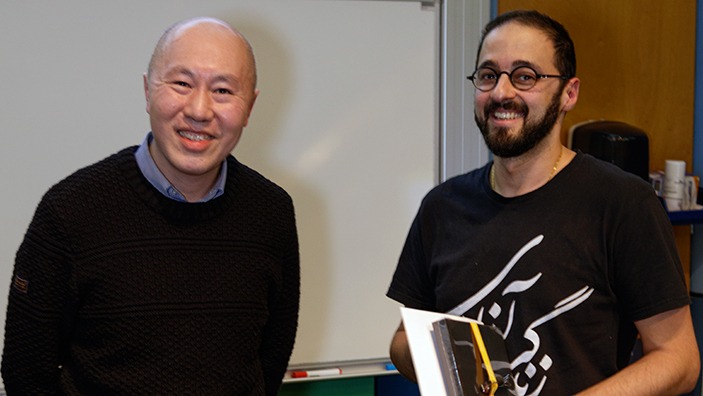
Kamiar Mohaddes wins Sandra Dawson Research Impact Award for his work on the economics of climate change.
A Gates Cambridge Scholar is one of two winners of the 2023 Sandra Dawson Research Impact Award for his work on the economics of climate change earlier this month.
The annual award was established through a generous donation from Professor Dame Sandra Dawson, a former Director of Cambridge’s Judge Business School. Winners are chosen based on reach (the extent and diversity of the organisations which have benefited from the research) and significance (the degree to which the impact has influenced or changed the policies, opportunities, perspectives or practice of non-academic organisations). The awarding panel applauded the recipients for “seeing beyond the boundaries of academia and fully engaging with non-academic organisations to inspire meaningful change”.
Kamiar Mohaddes [2005], Associate Professor in Economics & Policy and a Fellow of King’s College, was recognised for his work impacting climate change and net-zero policy. Kamiar’s paper in the journal Energy Economics on the economics of climate change, has been referenced extensively by the US Congressional Budget Office and 25 members of Congress in a letter to the Chair of the Federal Reserve Board. The letter expressed “concern over the limited action of the Federal Reserve (‘Fed’) to prepare our financial institutions and broader economy for the risk and destabilising impact of climate change” and worries that “progress will be both too slow and insufficient in scale to adequately address the reality of the crisis our economy and our planet face”. This work was also among the five research projects globally that was highlighted by the Financial Times in 2023 as outstanding work on sustainability research, and an Oxford University Press video about this work has got over 400K views.
Building on this work, Kamiar’s paper in the journal Management Science on the effects of climate change on sovereign creditworthiness received recognition as a runner-up in the 2022 Financial Times Responsible Business Education Awards. He is currently using his expertise to bridge the gap between academic research and policymaking and industry practice in the built environment. Kamiar’s co-authored study, “Social media enables people-centric climate action in the hard-to-decarbonise building sector”, provides one element of the research-led basis for an ongoing interdisciplinary project funded by the EPSRC Impact Accelerator Account Rapid Response Fund. This University of Cambridge project is designing knowledge translation options that can be implemented at speed and scale, first in the UK and then expanded internationally.
*Dr Kamiar Mohaddes [pictured right] receiving his award from Professor Vincent Mak.












